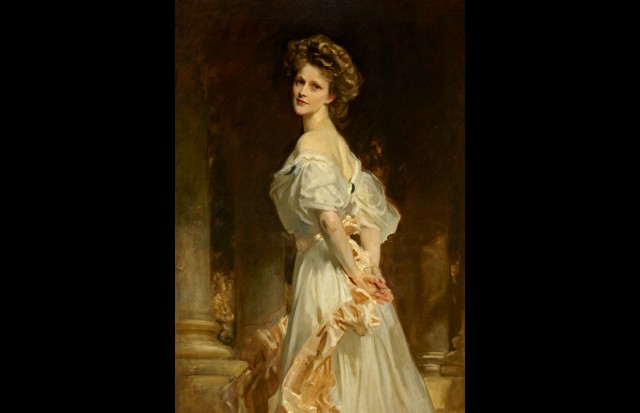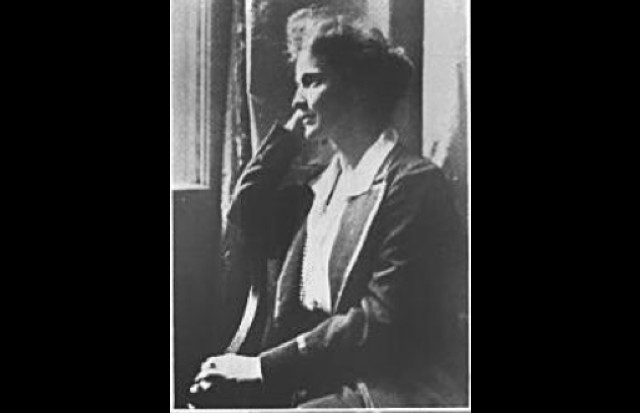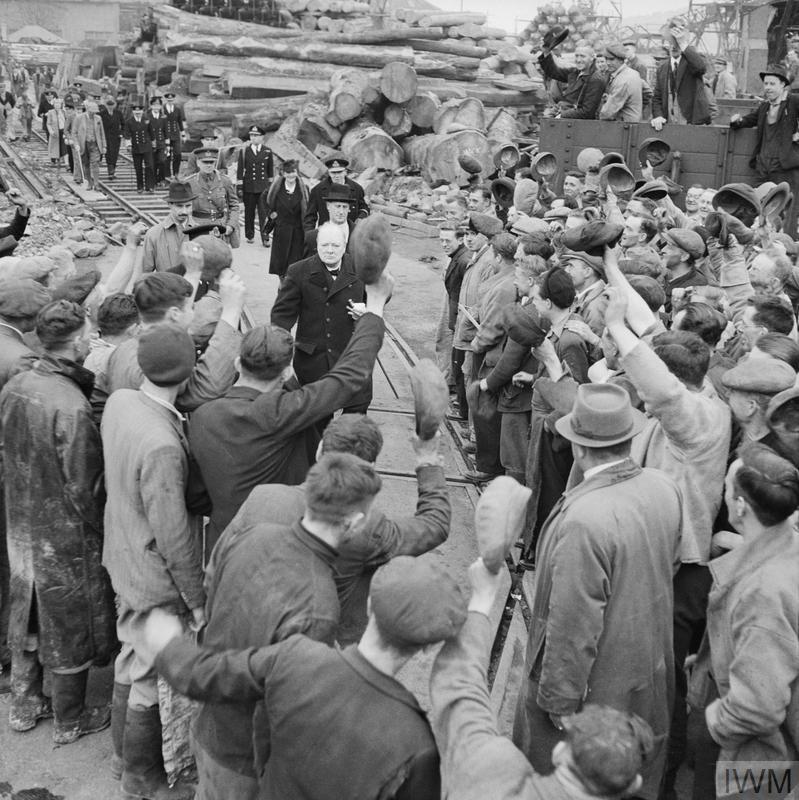The first woman elected to Westminster was Constance Markiewicz, but the first one to take up her seat in Parliament in 1919 was American-born Nancy Astor.
Background
Nancy Witcher-Longhorne was born in Virginia, USA in 1879. Her family’s fortunes initially fluctuated, but by 1892 they possessed considerable wealth. By 1903, she was a divorcee with a small child. Her father suggested that she should move to England. In 1906 she married an American-born Briton, Waldorf Astor, one of many eligible men who sought her hand. She was a beauty; he was heir to one of the richest men in the country and was besotted with her. It was a good social match.

They moved in high social circles. Nancy used these connections to steer Waldorf away from his family’s interests in newspapers, which he hated, and into politics. In 1908 he was selected as the Unionist candidate for Plymouth.[1] Nancy was an ardent campaigner for him. He came third in the election in January 1910, but was elected as the MP for Plymouth in December that year.
In 1914, she converted to Christian Science. Combined with the teetotalism adopted in response to her father’s drinking, this would become a strong influence on her life. Waldorf and Nancy took a pastoral interest in his constituency. This increased with the advent of war in 1914 and Nancy committed herself to welfare work.
The vacant seat
On his father’s death on 18 October 1919, Waldorf was immediately elevated to the House of Lords as the 2nd Viscount Astor. Despite his wish to stay in the Commons he was obliged to renounce his seat. He considered relinquishing his seat in the Lords. To do so, though, required an Act of Parliament, which his party was unwilling to support for political reasons.
The Unionist Party had to appoint another candidate. They originally approached Waldorf’s brother, who declined because of his war wounds. Despite the strength of the Waldorf name, they originally hesitated to adopt Nancy. Only one woman was elected in the general election in 1918, the first in which women could stand, Constance Markievicz. As an Irish Nationalist, she did not take her seat. So putting forward a woman candidate was still considered a political risk. Other concerns about Nancy’s suitability were that she was glamorous, sharp-tongued, and previously divorced.
It was Waldorf’s idea that she should stand, with the hope that he would be able to return to his constituency role. This left Nancy in a quandary. If she successfully ran, and accepted the position in a caretaker capacity, it would be damaging to women’s fight for equality. To take on the position fully would not help Waldorf.

Standing for parliament
She faced 2 opponents, from the Labour Party and the Liberals. Neither of them had fought in the war, something she focused on when campaigning. A disadvantage for the Labour candidate was that the Labour Party opposed the government’s intervention against the Bolsheviks in Russia. In a naval city like Plymouth, this was not a vote winner.
She campaigned hard, just as she had applied herself to relief work during the war. She faced hecklers. Her glamour did not count against her, as it increased the curiosity of her audience about her. One organisation supporting her was the Association for Social and Moral Hygiene. Her advisers told her not to focus on temperance as an issue in her campaign. However, as both of her opponents were themselves teetotal, it did not count against her as much as it might have.
The election took place on 15 November, but the votes were not counted until 28 November. This was to allow time for postal votes from those serving overseas to be included. The voter turnout was high – 73%. It had been 60% in the general election the previous year. Nancy won with a majority of over 5,000.
Taking her seat
Nancy described her first 5 years in the Commons as ‘hell’. Some members of the House, including previous friends, were unwelcoming. Others, such as Lloyd George, endorsed her.
It was not until 1922 that any other women took their seats in Parliament. Although Nancy was not associated with women’s suffrage prior to her election, she initially supported other women MPs, irrespective of party.
Her priority was welfare issues relating to under-privileged women and children. Her strongest passion, connected to this, lay in supporting teetotalism. She led the bill to raise the legal drinking age from 14 to 18.

1939 onwards
As in the First World War, Nancy worked hard to support the welfare of troops during the war, running a hospital for Canadian soldiers. Maybe the strain told, as her wartime speeches became somewhat long and erratic. She was also known for heckling and interrupting other MPs. Such behaviour lost her friends and allies.
Nancy was a woman of strong beliefs; the depth of these feelings means that her reputation today is somewhat tarnished. She was fiercely anti-Catholic, and anti-Semitic. Some suggest that her views were no more prejudiced than those of men of the period, but that being a high-profile woman, they were remembered. Most notoriously, in the summer of 1944 she was alleged to have labelled the soldiers fighting in Italy the “D-Day Dodgers”. Although there is no proof she ever did use the term, and she strongly denied it, the phrase and her association with it, stuck. The epithet was adopted with sardonic pride.
By 1945 the Conservative Party considered her erratic talk and decline in popularity to be a liability. Waldorf persuaded her not to stand in the general election. She retired from politics, but the subsequent strain on her marriage meant that the couple separated for a number of years afterwards.
Nancy Astor’s biggest success was not reflected in any particular legislation she championed. Nor was she ever appointed to any significant political post or ministerial position. Her legacy lay in successfully breaching the male domain of Westminster and remaining there for 26 years. By doing this she led the way for other women to follow her and for Parliament, finally, to represent all citizens.
[1] Officially called the Unionist and Conservative Party, later more commonly just referred to as the Conservatives.
Keep tabs on the past: sign up for our email alerts
Follow our Foreign & Commonwealth Historians on Twitter @FCOHistorians
1 comment
Comment by Stella JUPE posted on
Enlightening description of the day and unimagineable prejudices no doubt faced in her early days in office!